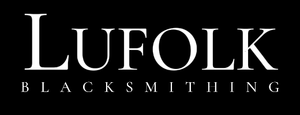I stood in my workshop, surrounded by half-finished pieces, the familiar scent of forge smoke clinging to my clothes.
The market event invitation lay on my workbench; its deadline was approaching. My hands traced the rough edge of an unfinished pendant—one of dozens I'd promised to complete for the upcoming show.
The forge remained cold and silent.
For the past week, I've walked past my workshop every morning, shoulders heavy with guilt. The to-do list grew longer, while my motivation shrank.
Each passing day added another layer of self-reproach: "Don’t let people down. Work harder. You should be doing more."
My phone buzzed again – another message from the event organizer asking for updates. I let it go unanswered, the weight of unread messages matching the heaviness in my chest.
Late one night, I sat at my kitchen table surrounded by sketches and timelines, with a cup of tea beside me. "When was the last time you wanted to work on these pieces?" I asked.
The question hit me like a hammer striking metal. I realized I couldn't remember.
At that moment, something shifted. I closed my eyes and pictured my ideal day: spending morning hours with my son, creating pieces that spoke to my soul, and building the core of my business around authenticity rather than obligation. With its mass-production demands, the event stood in contrast to this vision.
The realization didn't make the next step easier. Making that call to withdraw from the event, my fingers moved over the screen. Years of conditioning screamed that I was irresponsible, selfish, and unprofessional. But for the first time, I recognized these voices for what they were – echoes of expectations that weren't my own.
I did the call.
The responses varied. Some understood, others didn't. One particular sentence made me feel the familiar surge of guilt, but this time, something was different. Instead of drowning in it, I acknowledged it, and then let it flow past like water over stones.
The following morning, I walked into my workshop and lit the forge. Not for the market pieces, but for a design that had been tugging at my creativity for months. As the flames came to life, I felt something else awakening – a sense of alignment I hadn't realized I had lost.
Over the next few weeks, I noticed changes. My creativity flowed more freely. I spent more quality time with my son. The projects I chose to take on carried a deeper meaning. Even my customers noticed the difference in my work, commenting on the evident care and attention in each piece.
The guilt didn't disappear overnight. It still visits sometimes. But now I understand that being accountable doesn't mean saying yes to everything. True responsibility means honoring your values, setting clear boundaries, and treating yourself with the same compassion you'd offer others.
My workshop still gets messy, deadlines still loom, and I still face difficult decisions. But now, when I stand at my forge, I'm no longer weighed down by the expectations of others. Instead, I'm grounded in the knowledge that the most important commitments are the ones we make to ourselves.
The pendant I was to complete for the market still sits on my workbench. I've transformed it into something different now – a reminder that sometimes the bravest thing we can do is change course and that growth often begins when we choose to be gentle with ourselves.
As I hold these finished scissors, testing their balance and edge, I'm reminded of what they've taught me: Like these blades, we need both strength and flexibility to function well. One blade cannot cut alone – it needs its partner, moving in perfect harmony, just as we need to find harmony between accountability and compassion. The pivot point that joins the blades is like the moment of decision that connects our choices to our actions. Too loose, and the blades wobble, losing their purpose. Too tight, and they can't move at all.
But perhaps the deepest wisdom lies in understanding that scissors don't force their way through material – they separate it at its weakest point, with patience and precision. In life, too, our greatest progress often comes not from forcing our way forward, but from carefully cutting away what doesn't serve us, creating space for what does. And just as scissors must be maintained, sharpened, and cared for to keep their edge, we must tend to ourselves with the same dedication.
In the end, like these scissors in my hands, we are instruments of both separation and creation. What we choose to cut away is just as important as what we choose to keep. The art lies not in how many cuts we make, but in ensuring each cut is true to our purpose, guided by the steady hands of wisdom and self-compassion.
